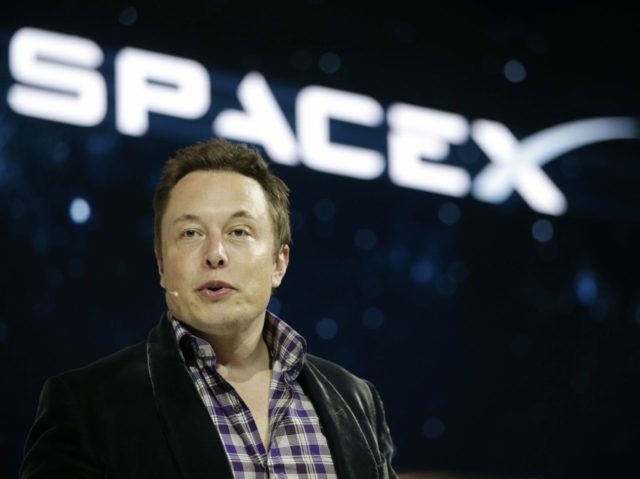SpaceX has taken over the launch duties for the U.S. Air Force’s top-secret X-37B “Spaceplane” and will power the experimental vehicle into space within two months.
The Los Angeles Times reported Wednesday that the announcement is “the military’s latest vote of confidence in the Elon Musk-led space company.”
Breitbart News reported earlier this year that prior to the company’s feat in re-using rockets, the accepted cost for a launch was about $60 million. But by spending $3 million on recovering and refurbishing a Falcon 9 rocket, plus $1 million in fueling, Space could cut the cost to $40 million, about a 33 percent savings.
The X-37B is called the mini-shuttle because it is about 29 feet long, has a wingspan of 15 feet, weighs just 11,000 pounds, and has been orbiting Earth at altitudes of between 200 and 250 miles. Although reusable X-37B looks and like a scale-model military “spacefighter,” it is designated as a temporary satellite to avoid violating the Cold War Outer Space Treaty that forbids military vehicles over 62 miles above the Earth.
Stratfor predicted in April that SpaceX’s rocket recycling success meant there would be a proliferation of rocket technology by governments and private companies around the globe that would make it impossible to restrict commercial and military access to space.
The four prior launches of the X-37B were handled by United Launch Alliance using the Atlas V rocket, including the 718-day mission that ended on May 7 with a flawless autopilot landing at Cape Canaveral’s Kennedy Space Center.
The unexpected and hugely significant contract for SpaceX was disclosed during June 7 public testimony by Air Force Secretary Heather Wilson in front of the Senate’s U.S. Armed Service Committee, in response to questions by New Mexico Senator Martin Heinrich. The U.S. Air Force had issued a statement saying that the X-37B would launch from Cape Canaveral in August on its fifth mission, but it had been assumed that the X-37B mission would powered into space by a ULA Atlas V rocket.
There was no bidding released regarding when and if SpaceX had won the business with a cheaper bid. But it is widely rumored that United Launch Alliance is being blamed for losing communications contract with the X-37B during its fourth mission.
Gizmodo reported that Randy Walden, Director of the Air Force Rapid Capabilities Office follow Secretary Wilson’s comment with the statement, “We are excited about this new partnership on creating flexible and responsive launch options and are confident in SpaceX’s ability to provide safe and assured access to space for the X-37B program.”
The X-37 started in the late 1990s as a NASA vehicle to service the International Space Station, but it was transferred to the Defense Advanced Research Projects Agency in 2004 and became classified as the X-37B. Only two “B” spaceplanes have been built, but Boeing is working on a 52-foot long X-37C spaceplane that could carry six astronauts.
SpaceX has five Falcon 9 launches scheduled before the early August X-37B mission.

COMMENTS
Please let us know if you're having issues with commenting.